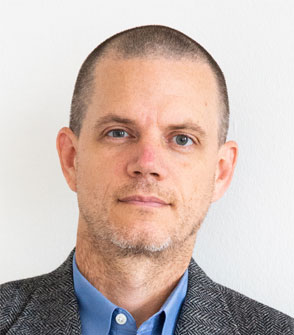Conscience and Complexity (Lecture by Prof. Alexander R. GALLOWAY)

| Date(s) | Tuesday, 7 May 2024, 10:00-11:00 am JST |
|---|---|
| Venue |
Zoom Meeting (Register here) |
| Registration | Pre-registration required |
| Language | English |
| Abstract |
Are there two things? Or is there really just one thing? Complexity describes an association between multiple elements that cannot be reduced to a single common term. Hence complexity describes the inconsistency of the one, and the persistence of the two (or three). In this talk we will examine various modern attempts to describe complexity, and even to prove it logically. In philosophy figures like G.W. Leibniz and Gilles Deleuze wrote some of the most beautiful (and baroque) descriptions of natural complexity. Within the fields of mathematics and logic, figures like Georg Cantor, Kurt Gödel, and Alan Turing each offered rigorous proofs of the boundary between two incommensurate domains of rationality, thereby showing rationality itself to be inherently complex. In psychoanalysis, Sigmund Freud (a complex thinker, a thinker of the complex) long insisted that the psyche existed in an autonomous realm irreducible to chemical or biological processes. And Jacques Lacan, the most important interpreter of Freud, likewise insisted on a distinction between what he called the symbolic order and the real. Taken in this way, discussions of complexity return to classic questions within metaphysics. We will conclude that metaphysics has not vanished in contemporary discourse, and that the persistence of metaphysical thinking shows that contemporary theory favors complexity. |
| Program |
Speaker Alexander R. GALLOWAY (Professor, NYU)
Moderator Evan DONAHUE (Postdoctoral Fellow, Tokyo College) |
| Speaker Profile |
Alexander R. Galloway is a writer and computer programmer working on issues in philosophy, technology, and theories of mediation. Professor of Media, Culture, and Communication at New York University, he is author of several books on digital media and critical theory, including Uncomputable (Verso, 2021) and The Interface Effect (Polity, 2012). |
| Organized by | Tokyo College, The University of Tokyo |
| Contact | tokyo.college.event@tc.u-tokyo.ac.jp |













